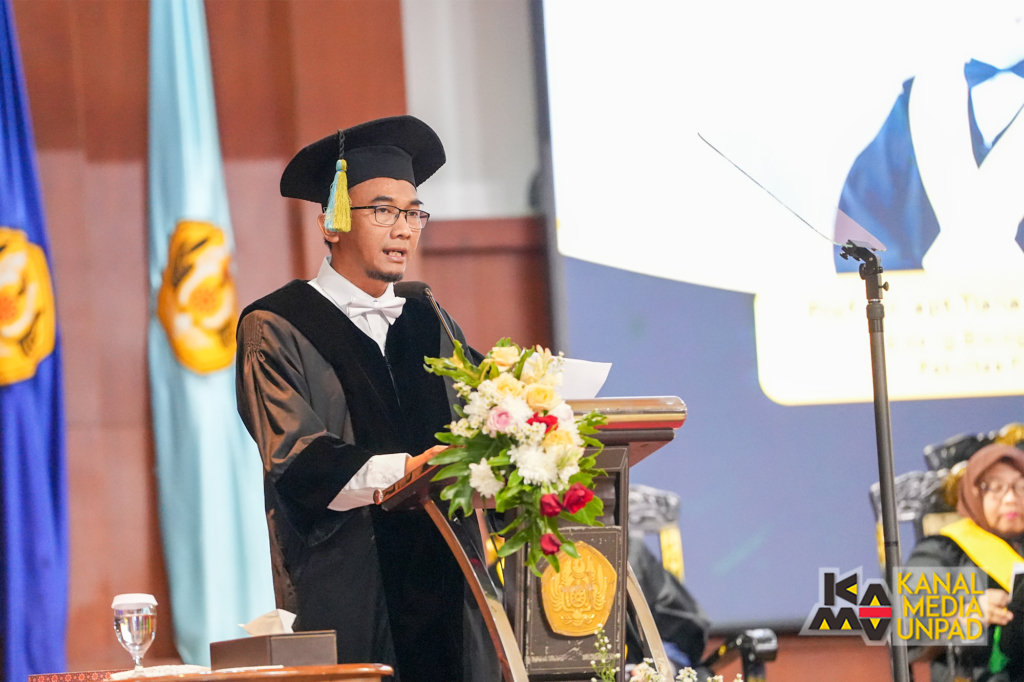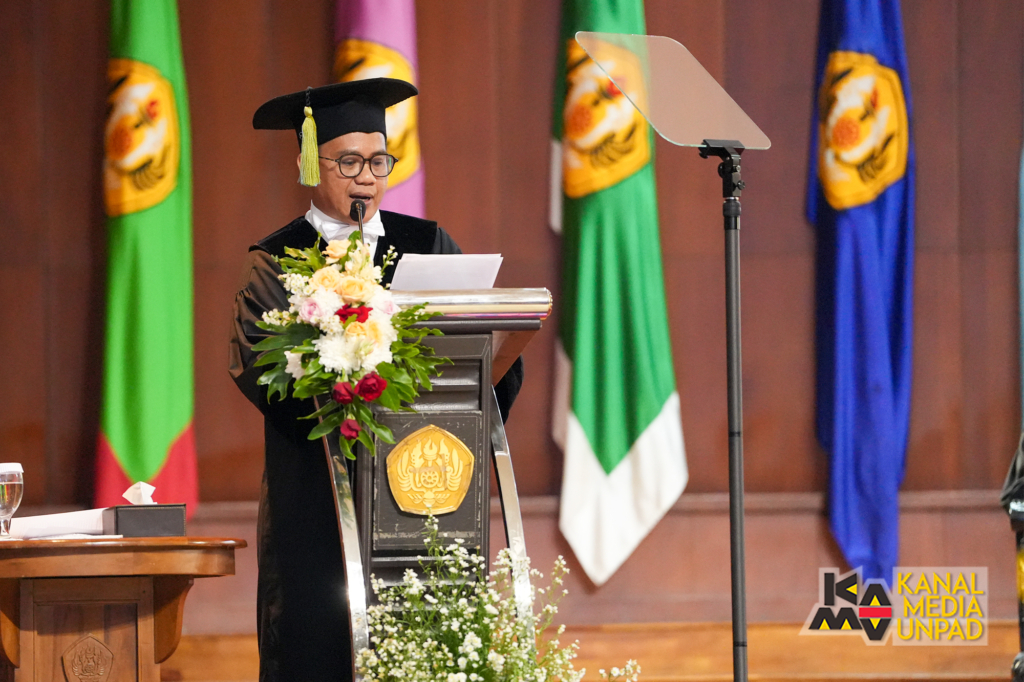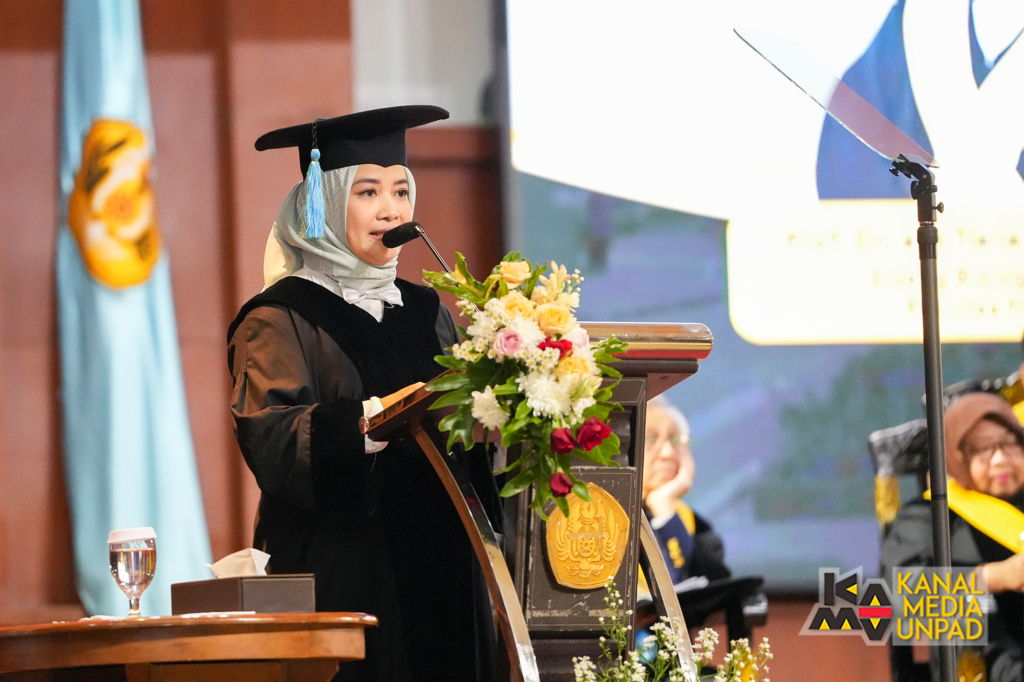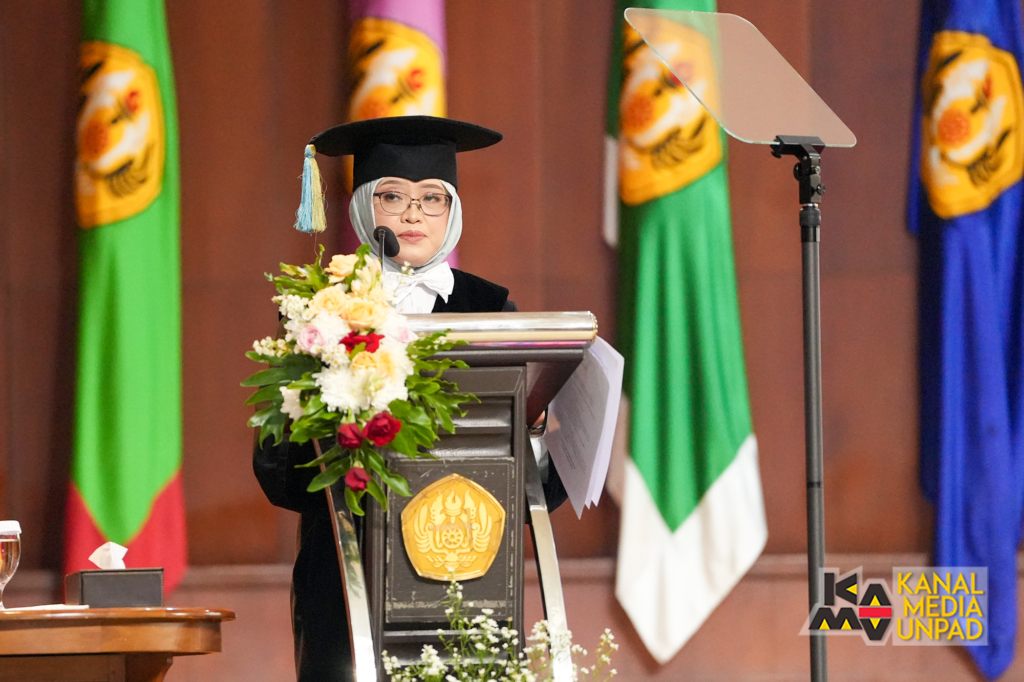[Unpad Media Channel] Pharmaceutical research resulting in innovation and downstream is a crucial step to achieving health resilience. Collaboration is needed to improve product quality and success in downstream.
“The basic research is an important step that is needed in finding innovation and is highly required by the industry to present the excellence and competitiveness of the products to be marketed,” said the Professor in the field of Pharmaceutical and Pharmacy Technology from Unpad’s Faculty of Pharmacy, Prof. Sriwidodo, when presenting the academic oration in the Appointment Ceremony and Academic Oration for the Professorship, which was held at Grha Sanusi Hardjadinata Unpad, Iwa Koesoemasoemantri Campus, Bandung, Tuesday (6/2/2024).
On that occasion, Prof. Sriwidodo “Downstream Pharmaceutical Raw Material Research through Innovation and Collaboration to Support Pharmaceutical Resilience”.

Prof. Sriwidodo said that one of the steps to improve health resilience was by strengthening pharmaceutical resilience and medical devices.
According to him, innovation is important to the success of downstream basic research that has already been undertaken. Collaboration is also the method to realize downstream.
“Universitas Padjadjaran has the highly adequate resources to establish an ecosystem for downstream research to contribute to enhancing academic output and positively impacting the tridharma activities of universities towards beneficial and global Unpad,” stated Prof. Sriwidodo.
Professor in the field of Pharmaceutical and Pharmacy Technology, Prof. Iyan Sopyan, said that researchers had a crucial role in the development of medicine raw materials. Researchers have to produce product-oriented research using raw materials to build a synergistic chain that supports pharmaceutical raw material self-sufficiency.

In the academic oration titled “Pharmaceutical Solid-State Engineering (Cocrystallization): A Strategy for Improving Active Pharmaceutical Ingredient Properties”, Prof. Iyan said that pharmaceutical solid-state engineering became one of the methods for increasing the properties of active pharmaceutical components in order to enhance numerous elements such as solubility, dissolving profile, stability, and mechanical qualities throughout the formulation process.
“The result of pharmaceutical solid-state engineering can improve the effectiveness of therapy by increasing bioavailability, reducing side effects, particularly regularly consumed medicine consumed due to specific disease,” said Prof. Iyan.
According to him, pharmaceutical solid-state engineering has the prospect of producing pharmaceutical dosage forms with superior features that are advantageous in terms of raw material production, pharmaceutical formulation manufacturing processes, and therapeutic efficacy during consumption by patients.
Moreover, Professor in the field of Pharmaceutical Analysis and Medicinal Chemistry from the Faculty of Pharmacy Universitas Padjadjaran, Prof. Ida Musfiroh, said that the process of invention and development of new medicine could be done through computation techniques.

“Computation technique has a crucial role as the first step to drug-target interaction testing,” said Prof. Ida.
Computation technique in the medicine design is known with computer-aided drug design (CADD) which has already been used for the last three decades. This technique can reduce the trial-and-error potential in the research process, so the findings process and the development of new medicine will be faster.
In her research, Prof. Ida uses computation techniques to develop inflammatory drugs from active compounds of Centella Asiatica/antana plants.
“Two compounds have been successfully developed from Asiatic acid as candidates for anti-inflammatory drugs through computation technique,” said Prof. Ida in her academic oration titled “Development of Selective Anti-inflammatory Drugs from Natural Lead Compounds”.
Furthermore, Prof. Ida said that the computation technique could also be developed as a risk analysis method in reaction to the presence of contaminants in raw materials and pharmaceutical preparations, as a preliminary effort for contaminant testing in the pharmaceutical industry.
“If this can be implemented in Indonesia in the recent and future time, then the national pharmaceutical industry can streamline quality control processes which has a significant impact on cost analysis efficiency,” mentioned Prof. Ida.
Professor in the field of Pharmacy Biology, Prof. Tiana Milanda, said that active ingredients of pharmaceutical preparations could be obtained from various fermentation products. Therefore, the research needs to be continued to develop the product.

The statement is delivered by Prof. Tiana in her academic oration titled “The Potential of Fermentation Products as Active Ingredients in Pharmaceutical Preparations”.
“In Indonesia, there are various fermentation products which have been traditionally used as functional foods, but also have the potential to be developed as active ingredients of pharmaceutical preparations. Thus, further research must be conducted to comprehend the activity of pharmacology from the fermentation products,” said Prod. Tiana. (art/SA)*



